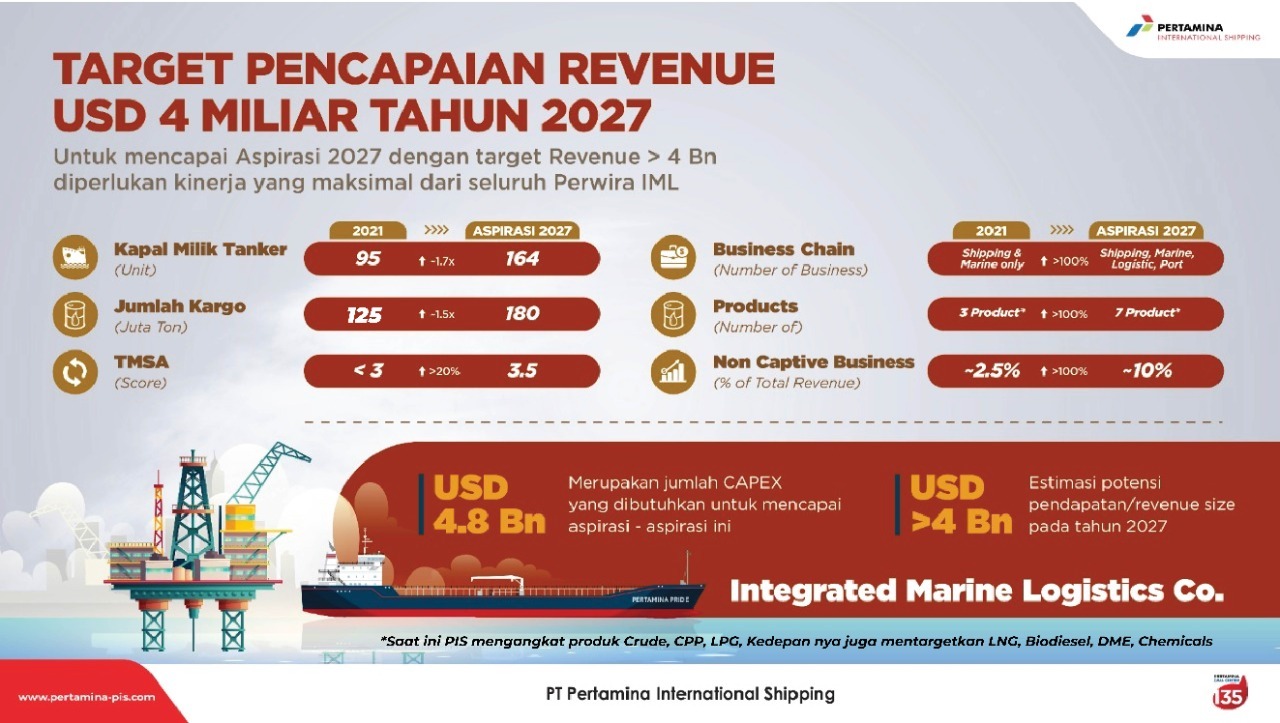
PIS Targets USD 4 Billion Revenue After Completing the Transformation Process
Jakarta, October 27, 2021 – PT Pertamina International Shipping (PIS) has completed the transformation from Subholding Shipping to Subholding Integrated Marine Logistics. The success has led PIS to the next phase, namely achieving the aspirations set by PT Pertamina (Persero) to reach revenues of more than USD 4 billion by 2027.
PIS has set various strategies to meet these targets. Improvements in multiple lines are continued, starting from the efficiency of shipping and marine cost operations, improving performance to minimize transport losses, expanding the market through collaboration between Pertamina’s subsidiaries, strategic partnerships, and applying organic and inorganic investment. Wisnu Medan Santoso, Director of Business Development of PIS, said, “The successful restructuring of PIS into Subholding Integrated Marine Logistics is a key driver towards a world-class integrated marine logistics company. Therefore, full support from all PIS workers is needed to realize the revenue target of USD 4 billion by 2027”.
To achieve this, PIS plans to increase the number of tankers, which has reached 95 units and will continue to increase to 164 units by acquisitions or new builds. The increase in the number of tankers owned is expected to increase PIS’ ability to distribute cargo, which currently stands at 125 million tons per year to 180 million tons per year. In addition, PIS also plans to expand the segmentation of the products types distributed. Previously, the segmentations were only crude, clean petroleum, and LPG. PIS plans to expand the segmentations into the Dimethyl Ether (DME), petrochemicals, and dry bulk segments in the future. Also, the green cargo segment, which consists of LNG and biodiesel, has been included in the PIS roadmap in developing future cargo types and carrying out the mandate of stakeholders in improving the company’s ESG aspects.
“The addition of a business chain since the transformation process complete, from previously only shipping and marine businesses to shipping, marine, logistics, and port businesses is a big capital for PIS. A strategic plan is needed to achieve these aspirations, one of which is the addition of fleets. It can be achieved by providing capital expenditure allocations according to the plan,” concluded Wisnu Medan Santoso.**